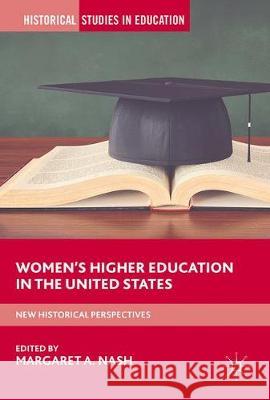Women's Higher Education in the United States: New Historical Perspectives » książka
topmenu
Women's Higher Education in the United States: New Historical Perspectives
ISBN-13: 9781137590831 / Angielski / Twarda / 2017 / 313 str.
Women's Higher Education in the United States: New Historical Perspectives
ISBN-13: 9781137590831 / Angielski / Twarda / 2017 / 313 str.
cena 564,88
(netto: 537,98 VAT: 5%)
Najniższa cena z 30 dni: 539,74
(netto: 537,98 VAT: 5%)
Najniższa cena z 30 dni: 539,74
Termin realizacji zamówienia:
ok. 22 dni roboczych.
ok. 22 dni roboczych.
Darmowa dostawa!
Kategorie:
Kategorie BISAC:
Wydawca:
Palgrave MacMillan
Seria wydawnicza:
Język:
Angielski
ISBN-13:
9781137590831
Rok wydania:
2017
Wydanie:
2018
Numer serii:
000435998
Ilość stron:
313
Waga:
0.68 kg
Wymiary:
21.01 x 14.81 x 2.69
Oprawa:
Twarda
Wolumenów:
01
Dodatkowe informacje:
Bibliografia
Wydanie ilustrowane
Wydanie ilustrowane











